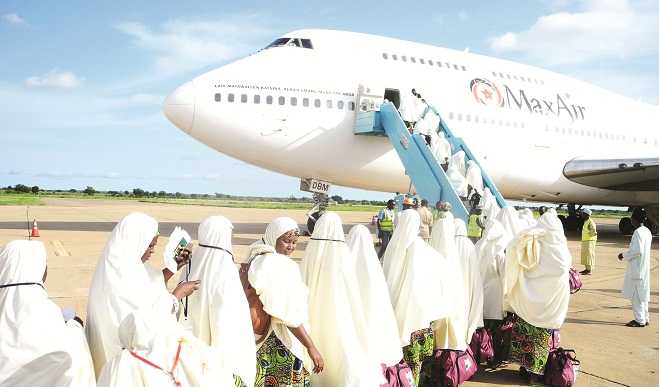The Ogun State Muslim Pilgrims Welfare Board is in the final stages of preparation for the 2025 Hajj pilgrimage, focusing on ensuring a smooth and successful journey for all intending pilgrims from the state. The Board, led by Executive Secretary Alhaji Ajibola Taiwo, has emphasized adherence to Saudi Arabian regulations, particularly concerning prohibited items, and has implemented a comprehensive program of inoculation, sensitization, and distribution of essential materials. Taiwo, in a statement relayed by the Board’s Public Relations Officer, Mariam Yusuf, underscored the importance of complying with these guidelines to avoid any complications during the pilgrimage. The airlifting of pilgrims from Ogun State is scheduled to commence on May 12, 2025, and the Board has expressed confidence in its readiness for the operation. The comprehensive preparations reflect the Board’s commitment to providing a seamless and enriching pilgrimage experience for the state’s intending pilgrims.
A key component of the Board’s preparation involves educating pilgrims on the specific regulations set by the Saudi Arabian government. This includes a detailed explanation of prohibited items such as kolanuts, knives, blades, scissors, and shaving sticks. The Board stressed the importance of strictly adhering to these rules to ensure a trouble-free pilgrimage. Beyond the prohibition of specific items, the sensitization efforts encompass a broader range of guidelines and expected behaviors while in Saudi Arabia, covering aspects like appropriate conduct in Mecca and Medina, respect for local customs, and adherence to the structured schedule of Hajj rites. This comprehensive approach aims to equip pilgrims with the knowledge and understanding necessary to navigate the pilgrimage with ease and reverence.
The Board’s proactive approach extends to health and logistical preparations. The final inoculation exercise was carried out in accordance with the guidelines stipulated by both the National Hajj Commission of Nigeria (NAHCON) and the Saudi Arabian government. This measure prioritizes the well-being of the pilgrims and mitigates potential health risks during their journey. Distribution of essential Hajj materials, including bags, uniforms, identification cards, hijabs, and other necessary items, was also conducted. This meticulous preparation ensures that pilgrims are adequately equipped for the journey and reinforces the Board’s commitment to providing a comfortable and well-organized experience.
Beyond the practical preparations, the Board has also emphasized the spiritual and ethical dimensions of the Hajj pilgrimage. Sheikh Iskeel Lawal, Consultant to Governor Dapo Abiodun on Islamic Affairs, addressed the intending pilgrims, emphasizing the importance of proper conduct and upholding the values of the state and Nigeria while performing the Hajj rites. This guidance underlines the significance of the pilgrimage as not just a personal journey but also a representation of the wider community. The pilgrims were urged to conduct themselves as ambassadors, reflecting the positive values of their home country. This focus on ethical conduct reinforces the spiritual essence of the Hajj and promotes a sense of shared responsibility among the pilgrims.
Health and safety advice were also integral to the final preparations. Dr. Mazeed Oloko, Head of the Medical Team, advised pilgrims to carry their prescribed medications and take necessary precautions against dehydration and excessive sun exposure. This practical advice aims to equip pilgrims with the knowledge needed to maintain their health throughout the demanding journey. Furthermore, Mr. Layi Adekanmbi, the Ogun State Commander of the National Drug Enforcement Agency (NDLEA), stressed the severe implications of drug-related offenses in Saudi Arabia, including the possibility of a death sentence. He urged pilgrims to prioritize the true purpose of the Hajj, focusing on worship and righteous deeds. This stern warning serves as a crucial reminder of the legal and ethical boundaries within which pilgrims must operate, ensuring respect for the laws of the host country.
The importance of safeguarding personal documents and maintaining good conduct throughout the pilgrimage were also highlighted. Mr. Aremu Mustapha, Assistant Comptroller of Immigration, emphasized the crucial need to protect passports and other valuable travel documents. Imam AbdulFatai Buhari, Head of Religion and Operations Units, underscored the significance of demonstrating respect, modesty, and orderliness during the Hajj exercise. These guidelines emphasize the practical and ethical considerations that contribute to a smooth and respectful pilgrimage experience. By emphasizing these aspects, the Board aims to ensure that the pilgrims not only fulfill their religious obligations but also contribute to a positive image of their state and country.














